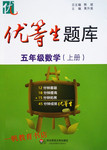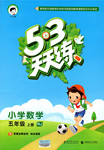题目内容
―______ was it that you managed to get yourself excused this time? A flat tire or the heavy traffic?
![]() ―What are you talking about ? My bike really broke down.
―What are you talking about ? My bike really broke down.
![]() A. How B. What C. Why D. Where
A. How B. What C. Why D. Where

 优等生题库系列答案
优等生题库系列答案 53天天练系列答案
53天天练系列答案I found out one time that doing a favor for someone could get you into a lot of trouble. I was in the eighth grade at the time, and we were having a final test. During the test, the girl sitting next to me whispered something, but I didn’t understand. So I leaned over her way and found out that she was trying to ask me if I had an extra pen. She showed me that hers was out of ink and would not write. I happened to have an extra one, so I took it out of my pocket and put it on her desk.
Later, after the test papers had been turned in, the teacher asked me to stay in the room when all the other students were dismissed. As soon as we were alone she began to talk to me about what it meant to grow up; she talked about how important it was to stand on your own two feet and be responsible (负责任) for your own acts. For a long time, she talked about honesty and emphasized the fact that when people do something dishonest, they are really cheating themselves. She made me promise that I would think seriously about all the things she had said, and then she told me I could leave. I walked out of the room wondering why she had chosen to talk to me about all those things.
Later on, I found out that she thought I had cheated on the test. When she saw me lean over to talk to the girl next to me, it looked as if I was copying answers from the girl’s test paper. I tried to explain about the pen, but all she could say was it seemed very very strange to her that I hadn’t talked of anything about the pen the day she talked to me right after the test. Even if I tried to explain that I was just doing the girl a favor by letting her use my pen, I am sure she continued to believe that I had cheated on the test.
【小题1】The story took place exactly ____ .
| A.in the teacher’s office | B.in an exam room |
| C.in the school | D.in the language lab |
| A.she had not brought a pen with her |
| B.she had lost her own on her way to school |
| C.there was something wrong with her pen |
| D.her own had been taken away by someone |
| A.to go on writing his paper |
| B.to stop whispering |
| C.to leave the room immediately |
| D.to stay behind after the exam |
| A.honesty | B.sense of duty | C.seriousness | D.all of the above |
| A.the moment he was asked to stay behind |
| B.when the teacher started talking about honesty |
| C.only some time later |
| D.when he was walking out of the room |
Once again, I was in a new school. So was a girl in my class named Lisa. That’s where the similarities ended.
I was tall and she was small. My thick black hair had been recently cut short into an untidy style. Her natural blonde hair flowed to her waist and looked great. I was 12 and one of the oldest in the class while she was 11 and the youngest. I was awkward and shy. She wasn’t. I couldn’t stand her, considering her my enemy. But she liked me and wanted to be friends.
One day, she invited me over and I said yes—I was too shocked to answer any other way. My family had moved six times in six years, and I had never managed to develop any friendships. But this girl who wore the latest fashions wanted me to go home with her after school.
She lived in a fun part of town that had two pizza places, an all-right bookstore, a movie theater and a park. As we walked from the school bus stop through her neighborhood, I tried to guess which house might be hers. Was it the white one with the perfect lawn or the three –story house with a front porch? I got very surprised when she led me into an old apartment building. She lived on the fourth floor in a two-room place with her mother, her stepfather, her two brothers and her sister.
When we got into the room she shared with her sister, she took out a big case of Barbies, which was my next surprise. I had never played with them. We sat on the floor, laughing as we made up crazy stories about the Barbies. We found out that we both wanted to be writers when we were older and both had wild imaginations. We had a great day that afternoon .
Lisa was loved by the whole neighborhood. The bookstore owners lent her fashion magazines; the movie theater gave her free tickets…. Soon I was included in her magic world. We slept over at each other’s houses and spent every free moment together.
Lisa, my first real friend since childhood, helped me get through the rough years of early adolescence and taught me an amazing and very surprising thing about making friends: your worst enemy can turn out to be your best friend.
【小题1】The writer and Lisa were similar in the way that .
| A.they were both new students |
| B.they had the same hair styles |
| C.they were both tall |
| D.they were of the same age |
| A.to go to the movie |
| B.to go to walk in a park |
| C.to go to her home |
| D.to go to a pizza place |
| A.friendly and lovely | B.rich and happy |
| C.quiet and lonely | D.awkward and shy |
| A.How to make up stories. | B.How to deal with enemies. |
| C.How to live a better life. | D.How to make friends. |
When I was 12, all I wanted was a signet (图章) ring. They were the "in" thing and it seemed every girl except me had one. On my 13th birthday, my Mum gave me a signet ring with my initials(姓名首字母) carved into it. I was in heaven.
What made it even more special was that it was about the only thing that wasn't being "replaced". We'd been burnt out in fires that swept through our area earlier that year and had lost everything—so most of the " new" stuff (东西) we got was really just to replace what we'd lost. But not my ring. My ring was new.
Then, only one month later, I lost it. I took it off before bed and it was missing in the morning. I was sad and searched everywhere for it. But it seemed to have disappeared. Eventually, I gave up and stopped looking for it. And two years later, we sold the house and moved away.
Years passed, and a couple of moves later, I was visiting my parents' when Mum told me that she had something for me. It wasn't my birthday, nor was it Easter or Christmas or any other gift-giving occasion. Mum noticed my questioning look. " You'll recognize this one," she said, smiling.
Then she handed me a small ring box. I took it from her and opened it to find my beautiful signet ring inside. The family who had bought our house 13 years earlier had recently decided to do some redecorations, which included replacing the carpets. When they pulled the carpet up in my old bedroom, they found the ring. As it had my initials carved into it, they realized who owned the ring. They'd had it professionally cleaned up by a jeweler before sending it to my mother. And it still fits me.
【小题1】The underlined word "in" in the first paragraph probably means "_____".
| A.fashionable | B.available | C.practical | D.renewable |
| A.13 years old | B.15 years old | C.26 years old | D.28 years old |
| A. The writer's family moved several times. |
| B. The writer never stopped looking for her ring. |
| C. The writer's ring was cleaned up by the new house owner. |
| D. The writer lost her ring in the morning when she took it off. |
| A.My New Ring | B.Lost and Found |
| C.Lost and Replaced | D.An Expensive Ring |